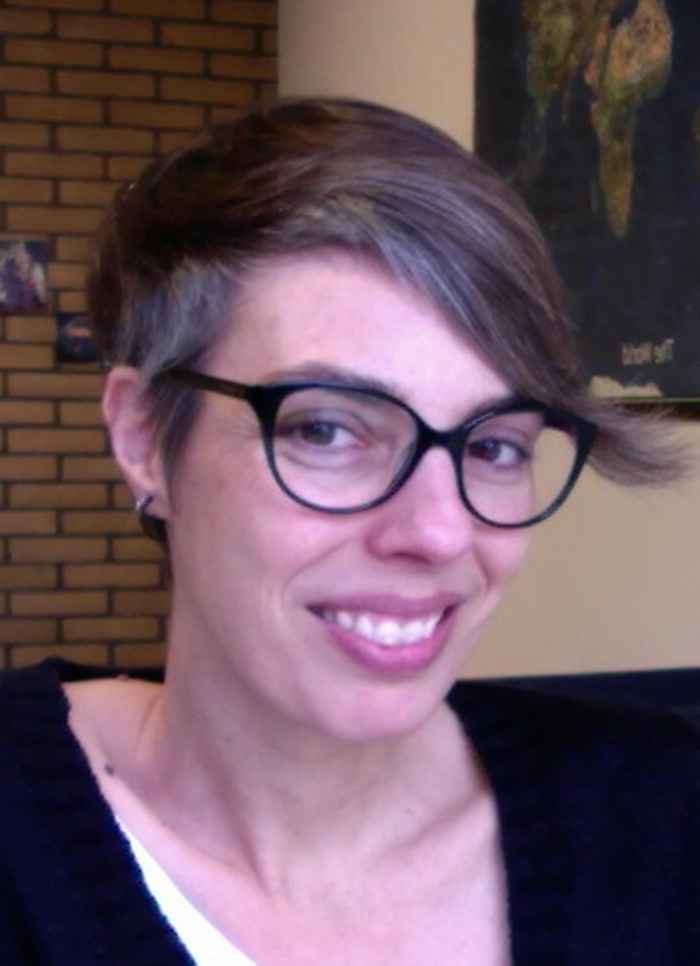An interview with Raquel Fernández

Research Career
“I did not always know I wanted to become a researcher. As a child, I liked reading and writing, so from when I was ten years old I already wanted to become a writer. When I chose my Bachelor’s degree, which was a degree in philology, literature was my main motivation. It was only during my Bachelor’s programme that I developed an interest in the scientific part of studying language, and I found that more motivating as a career path. I do still love literature, however, and I spend quite a lot of time reading.”
“What drew me to linguistics is a general interest in human capacities, and language is a very prominent one. It was just chance, however, that got me into dialogue modelling. That was the research area of my PhD supervisor, at the Computer Science department of King’s College London. This was an approach to language I had never taken before. During my Bachelor‘s and Master’s degrees in Barcelona, I had only studied language in a very abstract way – you look at isolated sentences, and then you may analyze this sentence, parse it syntactically, and see the semantic relations within it. But during my PhD I was exposed to the view that this way of analyzing language is perhaps too abstract – in reality, we use language mostly to talk to each other, and so it is primarily a communication tool. When I was introduced to this perspective, I really liked it and felt that this is indeed the approach we need as linguists, computational or otherwise.”
“After my PhD I moved around a lot before coming to Amsterdam. I did my first Post-Doc in Germany, at the University of Potsdam, near Berlin. Here I spent two years, and then I went to California, where I was a Post-Doc at Stanford University. My work at Stanford had an applied focus. It was still foundational in the sense that we looked at human conversations, but the overall goal of the project was to create a system that would be able to extract information from conversations. It was a very large project, with many different groups. This was the same project that ultimately led to the development of the Siri system by a team at Apple.”
“While I was at Stanford, I competed for an NWO VENI-grant. I received this grant, and I decided to move to Amsterdam, where my partner had already settled. In 2008 I arrived in Amsterdam, and I am still working here now. In part this was made possible by another grant, funded under the MEERVOUD-scheme, which encourages universities to appoint more female scientists to permanent positions.“
Current Research
“Right now, the main project I am working on is my VIDI-project, which I received in 2015. The title of this project is ‘Asymmetry in Conversation’. The main idea is to look at conversational situations, where the individuals that are interacting and talking have some different characteristics. For example, two years ago, we were looking at dialogues between children and their parents. This is a clear example of asymmetry, because one has less capability in language than the other, and so their conversations are constrained by this difference. What we investigated was how different types of feedback that come from the parents within conversation can help the children develop their language capacities. This led to some interesting results. For example, we found that corrective feedback has positive influence on the number of subject omission errors in child language acquisition. This suggests that children might perceive reformulations of erroneous utterances as implicit corrections and thus as negative input – something that is often considered to be absent in child-directed speech. This research got us a Best Paper Award at the Conference on Computational Natural Language Learning in 2016, so that was very nice.”
“Another line of research that is connected to this project is looking at interactive situations where we pay attention to the social characteristics of the individuals. For example, we look at whether the interacting individuals belong to the same social group, or at whether there are power differences between them, and how these differences affect the conversation. This research can help us see, for example, how new words spread in a community. Some classic sociolinguistic theories argue that individuals with strong social ties help disseminate new words. We were able to confirm this hypothesis at a large scale using a lot of data from online communities.”
Future research
“I have just heard that I have received another grant – an ERC Consolidator Grant - which should help realize a project that I have been wanting to work on for quite some time now. For this project I’ll again be analyzing natural language dialogue, but there will be a stronger emphasis on the cognitive and computational modelling part in connection to developing dialogue systems. In the last couple of years there has been this ‘deep learning revolution’, and many interesting new things have been happening also in my area of research. However, the people who are working on this are usually experts in machine learning, who may have only limited expertise when it comes to language and the study of conversation itself. What I want to do in this project is to add the linguistic perspective, in order to design and improve these systems.”
“Of course, I will not be able to solve all the existing problems in current systems, but one of the main issues I see is the fact that these systems are not competent enough to exploit context. They memorize some patterns they see in conversational corpora, but there is no real understanding or keeping track of contextual information. I hope that the perspective of linguists – people who have been analyzing language use for a much longer time – can help make some progress here.”